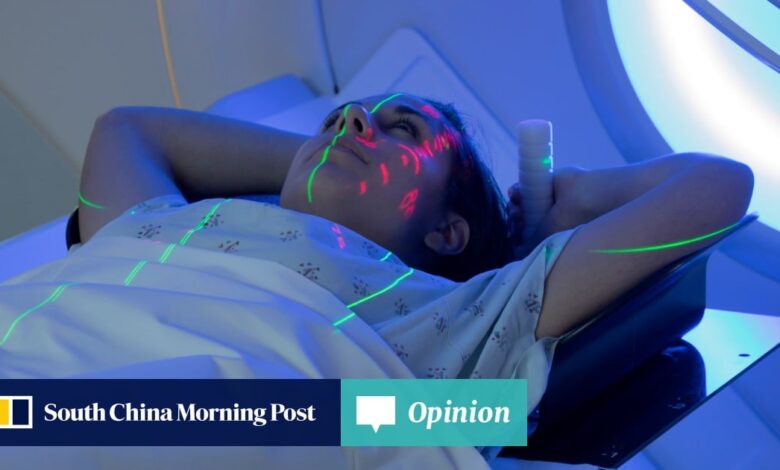Opinion | Hong Kong healthcare needs reform to remove barriers for patients seeking treatment

[ad_1]
However, certain barriers that can deter patients from seeking medical help still exist. My experience of helping my dad with his cancer treatment could provide some clues.
Last summer, my dad underwent minor surgery at a private clinic to remove a small lump on his upper right arm. After the pathology report identified the removed tissue as a malignant tumour, he was referred to specialist consultation at a public hospital.
Hongkongers fear cancer the most – but they’re also confused by it
Hongkongers fear cancer the most – but they’re also confused by it
Choosing a provider was no easy task. As different providers use different machines for diagnostic tests, procedures at some examination centres may take longer than others. Also, not all providers on the list offer the kind of scans requested by my dad’s doctor.
For example, one imaging centre asked the oncologist to reissue his request form to clearly indicate “whole of right arm” instead of just “right arm” before any further action could be taken. Another radiologist asked me to clarify if a PET scan without contrast – as opposed to what was requested by the oncologist – would be preferable considering possible side-effects of such scans on the patient.
Lacking the medical knowledge to deal with these requests, we could only leave messages for the nurse at the hospital who then sought further instructions from the oncologist.
The lack of coordination between public and private hospitals, as well as the absence of a centralised system to manage patients’ pathology specimens and coordinate their transfer, puts further burden on patients. To obtain dad’s tumour specimens, we went through a lengthy process to request that the private hospital keeping these records release them to the oncologist for further examination.
After plenty of paperwork, faxes and phone calls, we collected the required specimens in person from the laboratory, passed them to the oncologist and returned them afterwards. My dad would not have handled all this without family support.
In the end, my dad decided not to proceed with treatment. He was keen to inquire about diagnostic tests at the beginning. Gradually, his enthusiasm and persistence waned. His decision was driven much by personal circumstances. But I also wonder: had he had a smoother start in his battle against cancer, would the outcome have been different?
Dr Yvette To is a postdoctoral researcher at the Department of Public and International Affairs of City University of Hong Kong
[ad_2]
Source link






